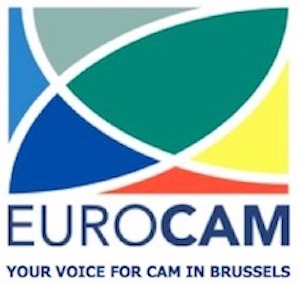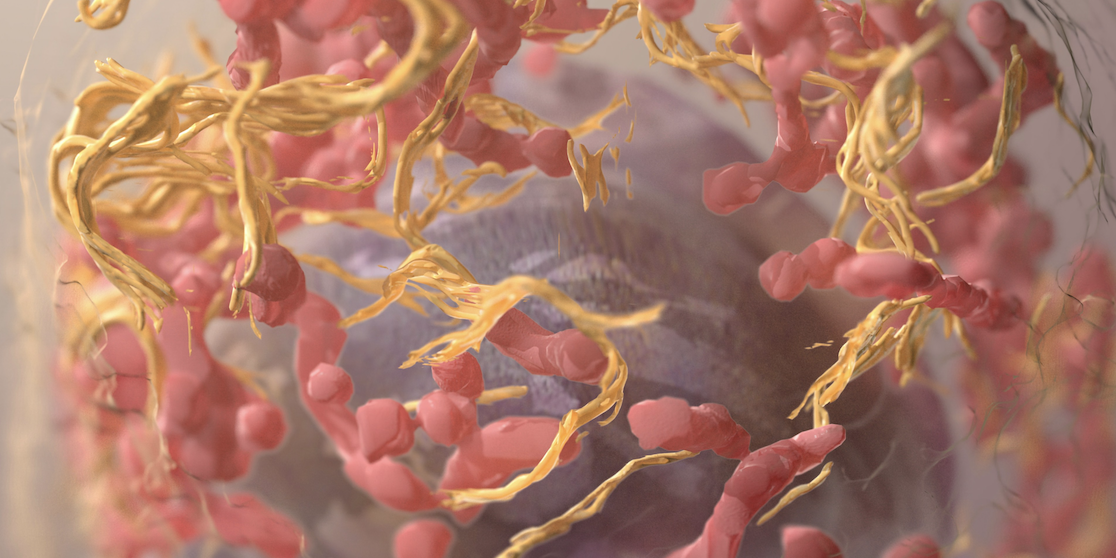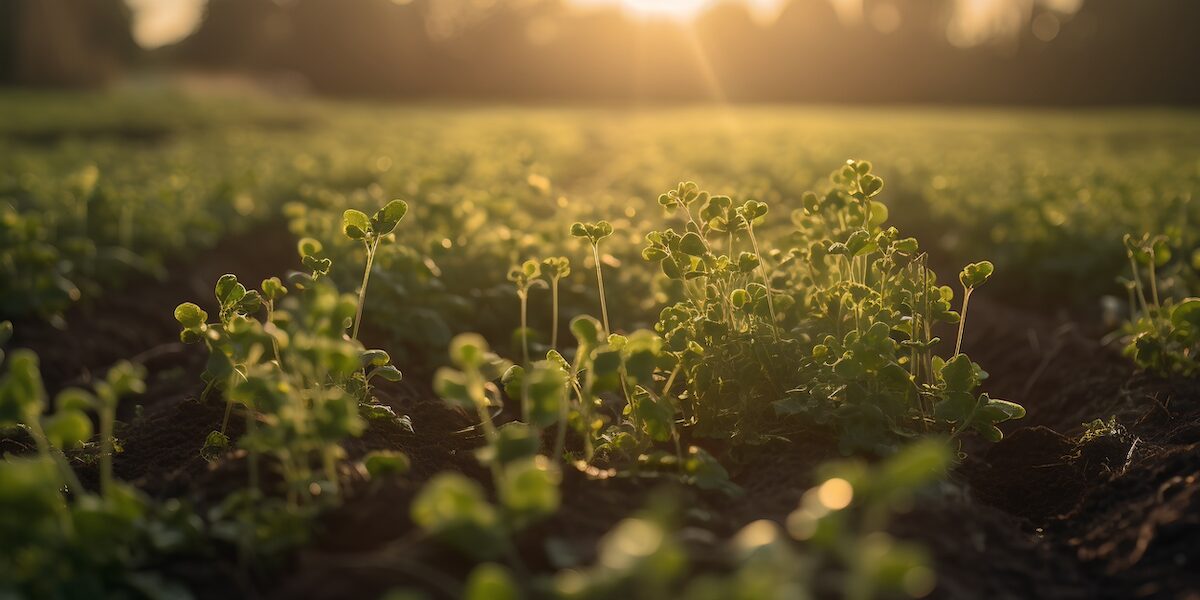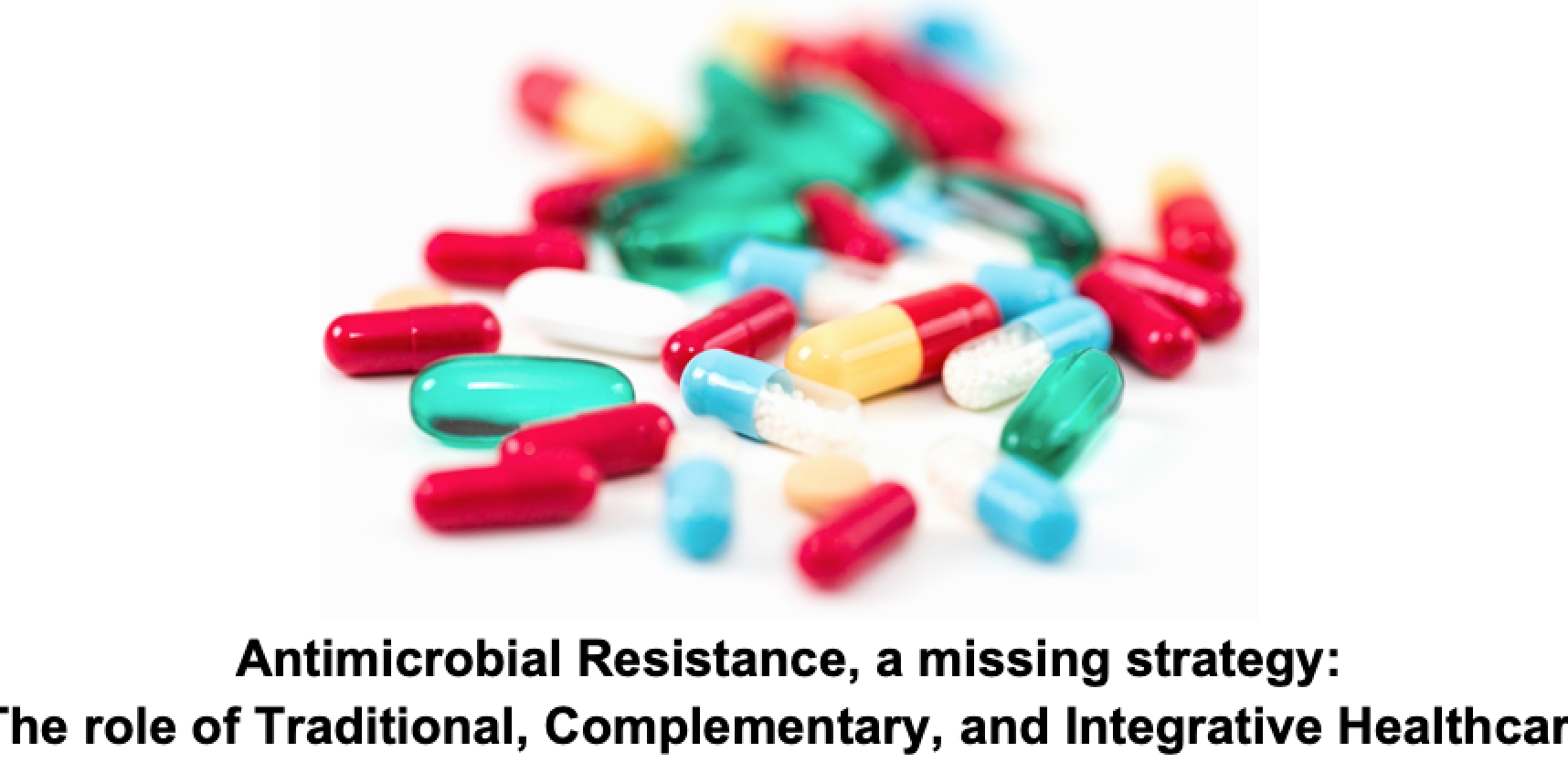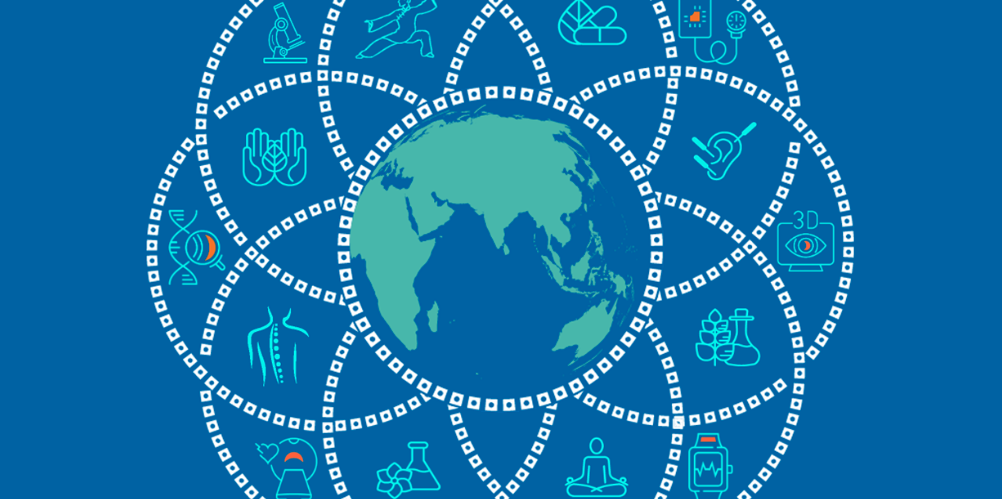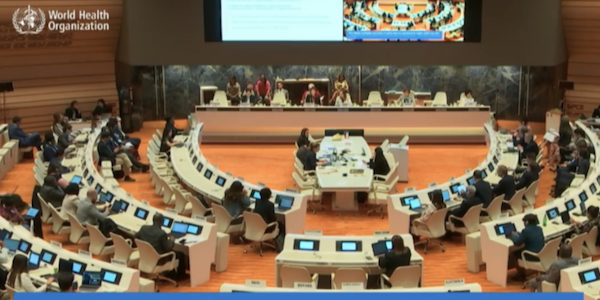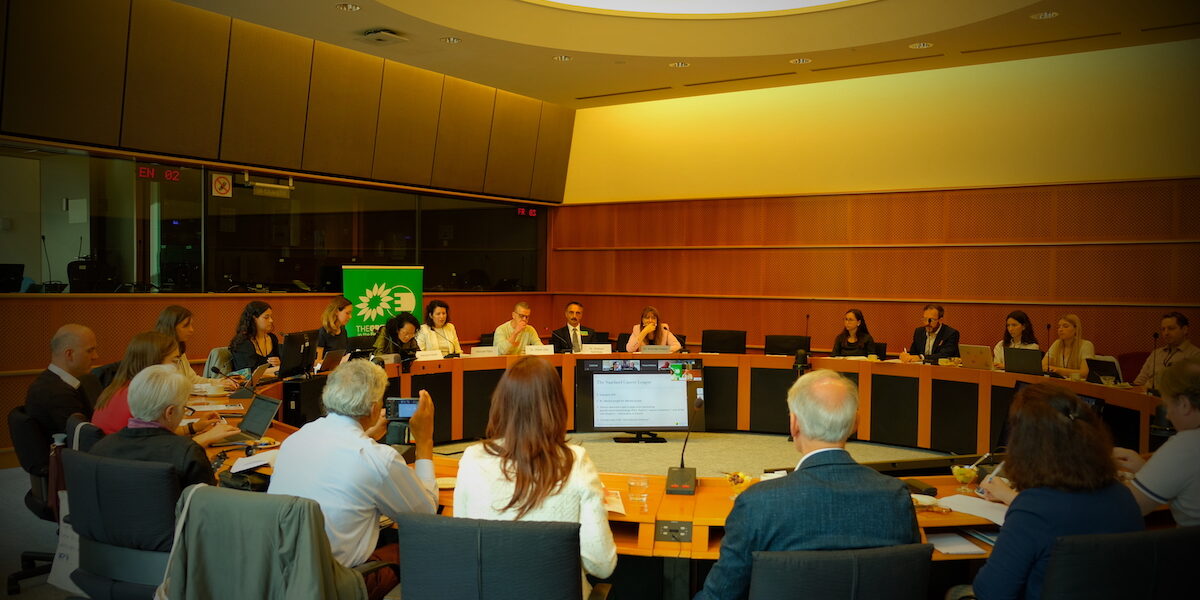Well-known speakers discussed during this “Day of Integrative Methods” the need for cooperation between conventional and complementary medicine; this is an innovative concept. Integrative medicine is indispensable in farm animal practice
April 15, 2021, online – “A holistic approach is required!” Mag. Kurt Frühwirth, veterinarian and President of the Austrian Chamber of Veterinarians (ÖTK) opened this event, which is all about integrative medical methods. The event took place for the second time – after a pandemic-related break – on April 15, 2021, but this time as a webinar. The interest was great, and more than 160 interested people attended to listen to the top-class speakers.
This unique event was organized in Austria by Dr Detlef Bibl, ÖGT (Austrian Society of Veterinarians) -President, veterinarian Dr Christine Kranabetter, Chair of the Holistic Medicine Section the ÖGT and the ÖGVH (Austrian Society for Veterinary Homeopathy)-President Dr Petra Weiermayer.
“The Day of Integrative Methods” was launched in 2018, to promote integrative medical methods and their practical application and to bring veterinarians, students and all interested people closer together.” Veterinarian Dr Christine Kranabetter, chair of the Holistic Medicine Section of the ÖGT & co-organizer.
Mag Kurt Frühwirth highlighted the importance of integrative medical methods. In his welcome statement, he re-iterated that: “As a responsible representative, the Austrian Chamber of Veterinarians is almost obliged to deal with the variety of different areas of interest, and I personally advocate the better cooperation between conventional medical and complementary medical methods. Veterinary medicine is not pure natural science but also an empirical science that can use other sciences. It is not only a matter of the expertise of the veterinarians working with conventional medical methods but also of the veterinary use of integrative medical methods for the benefit of our patients. The Ministry of Health also favours the term complementary medicine to signal that these methods should not be seen as an alternative, but as a valuable addition to conventional medicine.” In the end, Frühwirth pleaded to his colleagues: “Complementary medical methods should complement conventional medicine, in the sense of integrative medicine. The trench warfare between conventional medicine and complementary medicine – unfortunately also within our profession – should finally be overcome in favour of integrative medicine. I am sure that today’s event will do a lot to improve the situation. ”
One Health – together for the health of people, animals and the environment
The conference organisers on integrative methods have once again managed to bring well-known experts from various areas of integrative medicine to the online podium. The result was an exciting webinar that was followed with great interest by colleagues from all areas of medicine and pharmacy and students and farmers.
In addition, the two major promoters of integrative medicine, Dr Fritz Gamerith, Managing Director of Schwabe Austria, the traditional company and market leader for homeopathic and phytotherapeutic medicines, and Erika Popa from Drott Medizintechnik, were guests in the virtual lecture room.
The speakers were Dr Petra Weiermayer, a specialist veterinarian for homeopathy, ÖVGH president and head of the research section of the Scientific Society for Homeopathy (WissHom), who showed that based on high-quality studies that the urgent reduction of the use of antibiotics in livestock practice is possible with the use of integrative medicine.
The next lecture was given by Dr Martin Werner-Tutschku, managing director of the Traunkreis Vet Clinic. The experienced veterinarian explained how he uses homeopathy to give the pigs the best possible support for high performance in fattening and breeding operations.
Dr Doris Gansinger, a poultry specialist, reported how certain plant substances contribute to reducing antibiotic use on the one hand and how they can increase the effectiveness of conventional drugs on the other.
“There are some indications that cannot be treated with conventional medicine,” reports Mag Michael Ridler, a specialist veterinarian for homeopathy and holder of the ÖTK diploma for phytotherapy. He showed through two case studies how sustainably successful integrative medicine is practised in the cowshed.
The last two lectures turned out to be “needle-like and prickly”: The specialist veterinarian for acupuncture and neural therapy, Dr Andreas Zohmann spoke about the history of acupuncture, which has been used since the dawn of mankind.
The last lecture of the day revolved around the dreaded mastitis (inflammation of the udder) in dairy cow husbandry: conventional therapy includes antibiotics, but “unfortunately they don’t always help,” said the former ÖGT President Dr Harald Pothmann. His successful pilot study clearly shows the positive effect of ear acupuncture on cows’ udder health.
The contributions in detail – an overview
Dr Petra Weiermayer
“Integrative medicine approach to the problem of antibiotic resistance”
The first speaker pleaded for the coexistence of medicine in the sense of integrative medicine. Dr Petra Weiermayer, a specialist veterinarian in homeopathy, president of the ÖGVH and head of the research section of WissHom: “The use of integrative medicine is more than necessary, especially because of the global threat posed by the steady increase in antibiotic-resistant bacteria,”. She showed that based on high-quality studies, homeopathy had sufficiently proved the effectiveness of homeopathy to warrant further research and examine how homeopathy can significantly reduce the use of antibiotics. She also referred to the review recently published by her and 3 other human and veterinary doctors in a conventional peer-reviewed journal. (* 1)
“In the sense of One Health, that is, the health of humans, animals and the environment, integrative medicine is trend-setting. The common goal of conventional and complementary medicine is to reduce the use of antibiotics – and to achieve this goal in the long term is only possible with a common path!” In this sense, within the framework of the 10th JPIAMR (Joint Programming Initiative on Antimicrobial Resistance), the Project “Network T&CM (Traditional and Complementary Medicine) A Global Initiative for Traditional Medical Solutions Against Antimicrobial Resistance (GIFTS-AMR)” has started and is made up of international experts in the fields of human and veterinary medicine, pharmacy and biology in the spirit of One Health. Univ-Prof PD Dr Peter Panhofer, Uni-Prof Dr Michael Frass and Dr Petra Weiermayer represent Austria.
“The European Green Deal (Farm2Fork Strategy) and the EU Organic Regulation 2018/848 aim at reducing the use of antibiotics across the EU by 50% by 2030 and increase the number of organic farms from 8% to 25%, as well as promoting the preferential use of homeopathy and phytotherapy in organic farms over conventional drugs, including antibiotics. The veterinary profession must now follow these roadmaps.
This will only be possible by better integrating complementary medicine, including homeopathy, at universities: in teaching and research. There is an urgent need to increase the number of veterinarians appropriately trained in complementary/integrative medicine and promote research at the university. This requirement for the benefit of patients is already anchored in law in Switzerland according to the Medical Professions Act for teaching and research at the university. It should serve as a model for other countries.’’
*1: Evidenzbasierte Veterinär-/Homöopathie und ihre mögliche Bedeutung für die Bekämpfung der Antibiotikaresistenzproblematik – ein Überblick. Weiermayer, P., Frass, M., Peinbauer, T., Ellinger, L. Schweiz Arch Tierheilkd 162(10):597-615. https://sat.gstsvs.ch/de/sat/sat-artikel/archiv/2020/102020/evidence-based-homeopathy-and-veterinary-homeopathy-and-its-potential-to-help-overcome-the-antimic.html
Dr Martin Werner-Tutschku
“Homeopathy in Pig Practice”
For 30 years, Dr Werner-Tutschku has been working in farms, sometimes treating groups of 1,000 fattening pigs: his lecture is just as practical. “I am a conventional doctor in heart and soul and use antibiotics where they are necessary,” says the managing director of the Traunkreis Vet Clinic, “but I am always happy when I can use integrative methods. And homeopathy, in particular, has proven itself for me in everyday clinical practice. ”
There are already many farmers in Austria that call for homeopathy to be used on their farms because “pigs, in particular, are high-performance animals, and everything really has to be right”. Dr Werner-Tutschku, an experienced veterinarian, offered an interesting insight into his everyday work as a vet and gave tips for suitable homeopathic medicines for all things related to the birth of pigs, piglet soot (Staph hyicus exudative epidermitis), respiratory diseases & Co. (see also interview!)
Dr Doris Gansinger
“Phytotherapy and holistic approaches and concepts for poultry farming”
The next lecture dealt with the comprehensive possibilities of plant substances. Dr Doris Gansinger, a veterinarian for poultry for almost 20 years: “The main focus of phytotherapy is prophylaxis and metaphylaxis. That means phytotherapy and holistic approaches serve salutogenesis and strengthen resilience!” But Gansinger also pointed out that none of these methods and measures is a substitute for optimized environmental conditions, such as care, feeding and husbandry measures – all of these factors are crucial in livestock husbandry.
It is important to establish and maintain a microbial balance that is as stable as possible in the intestinal microbiome, which can be successfully achieved with phytotherapy. “With functional plant substances and competitive exclusion concepts, we can optimize and reduce the use of antibiotics, thus reducing the risk of resistance build-up and maintaining the effectiveness of the therapeutic agents that we need in sick animals. Phytotherapy also makes a major contribution to One Health,” explains Gansinger. (see also interview!)
Mag. Michael Ridler
“Integrative medicine in the cattle stable – a field report from practice”
Antibiotic resistance is also a big issue in the cowshed, explains specialist for veterinary homeopathy Mag. Michael Ridler who also has an ÖTK diploma for phytotherapy. “There are some indications that cannot be treated with conventional medicine. In addition, homeopathy, in particular, is often easier to administer in the cattle barn and also cheaper than conventional medicines.”
He illustrated how well integrative therapy can work through two case reports. The first case report revolved around peripartum udder oedema, which, in addition to problems with milk ability, standing up and lying down, can also lead to an increased risk of mastitis and injuries udder skin and teats.
Mag. Ridler was able to completely heal the udder edema within a few days using homeopathic therapy, and there was no recurrence afterwards. He showed a success that impressively demonstrates the sustainability of integrative medical treatment methods and the successful phytotherapeutic treatment of a treatment-resistant pelvic inflammation. This healed completely after three unsuccessful antibiotic therapies by using two functional plant substances for three weeks. Meanwhile, the cow Luna has given birth to two calves and is now pregnant for the third calf and no longer has any problems with urinary tract infections.
Dr Andreas Zohmann
“Behavior and acupuncture – the ability to regulate an acupuncture point”
Dr Andreas Zohmann, a specialist veterinarian for acupuncture and neural therapy, took us on a historical excursion through acupuncture in a needle-like manner. The journey went from Olympus to Ötzi and from tattoos to veterinary medicine. Acupuncture goes back to around 500 BC. Meanwhile, several studies have shown how this regulatory medicine can support our animals and us.
By the way: Even the animals themselves activate certain acupuncture points purely instinctively. For example, cows lick each other’s digestive points to help them chew the cud.
Dr Harald Pothmann
“Use of auriculotherapy for udder health in dairy cows”
The last lecture was also about acupuncture, but about the special kind of ear acupuncture, called auriculotherapy. Dr Harald Pothmann presented a pilot study that examined the extent to which auriculotherapy can influence udder health. “We all want bacteriologically perfect milk – and udder health is a decisive factor here. But about every fifth cow in Austria suffers from clinical mastitis once a year. The proportion of subclinical mastitis is even higher. For the farmer, this is costly and can mean up to 20% loss of income.”
Therapy for subclinical mastitis is difficult and often unsuccessful. Therefore, as part of a thesis, it was investigated whether the stimulation of the so-called udder point on the ear can lead to an improvement in udder health. The result of this study was that this was possible in many cows: a positive effect was evident! Pothmann: “We can consider this method to be quite successful. However, this pilot study cannot yet prove whether there is definitely a potential to save antibiotics – follow-up studies are still needed to verify this.
Health news related to Complementary and Alternative Medicine
Do you want to stay informed about health news in relation to CAM?
